collective speaking performance
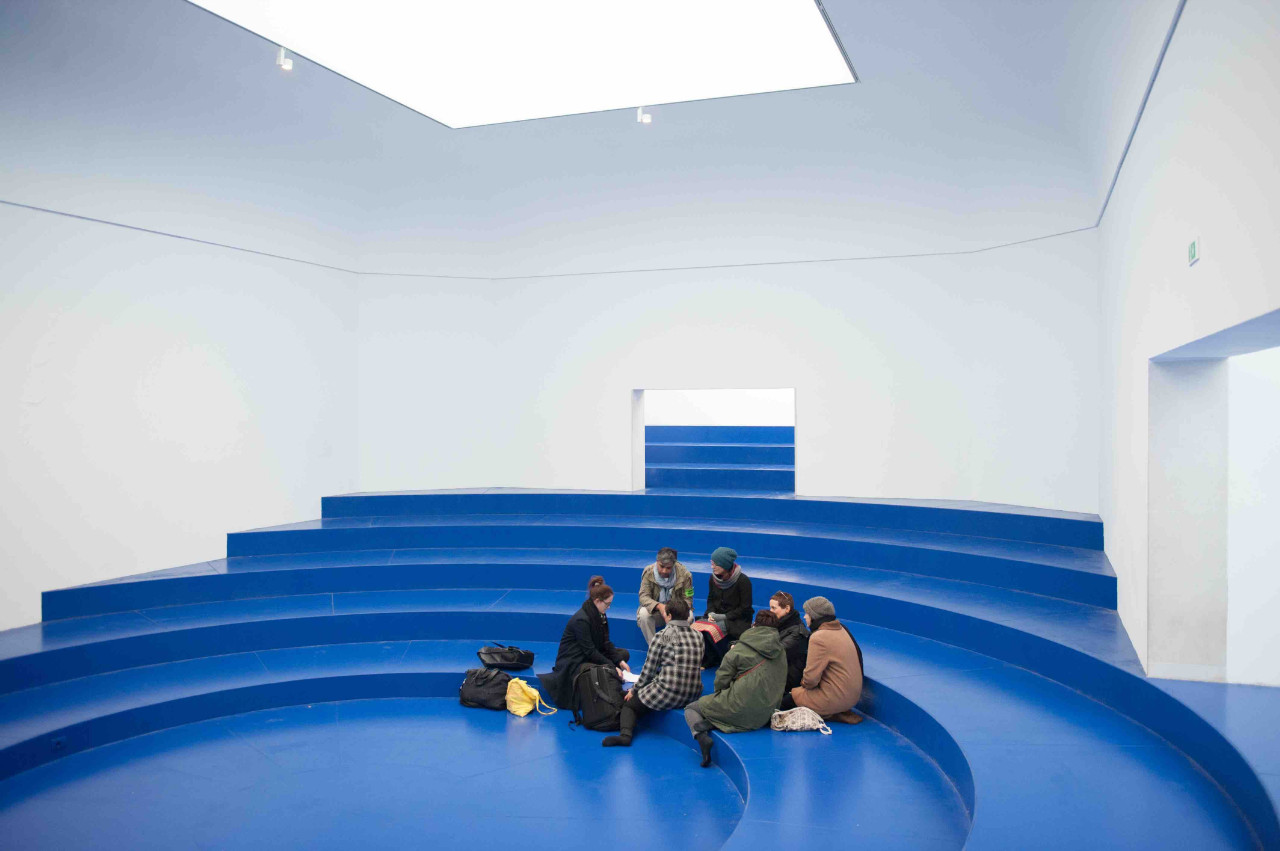
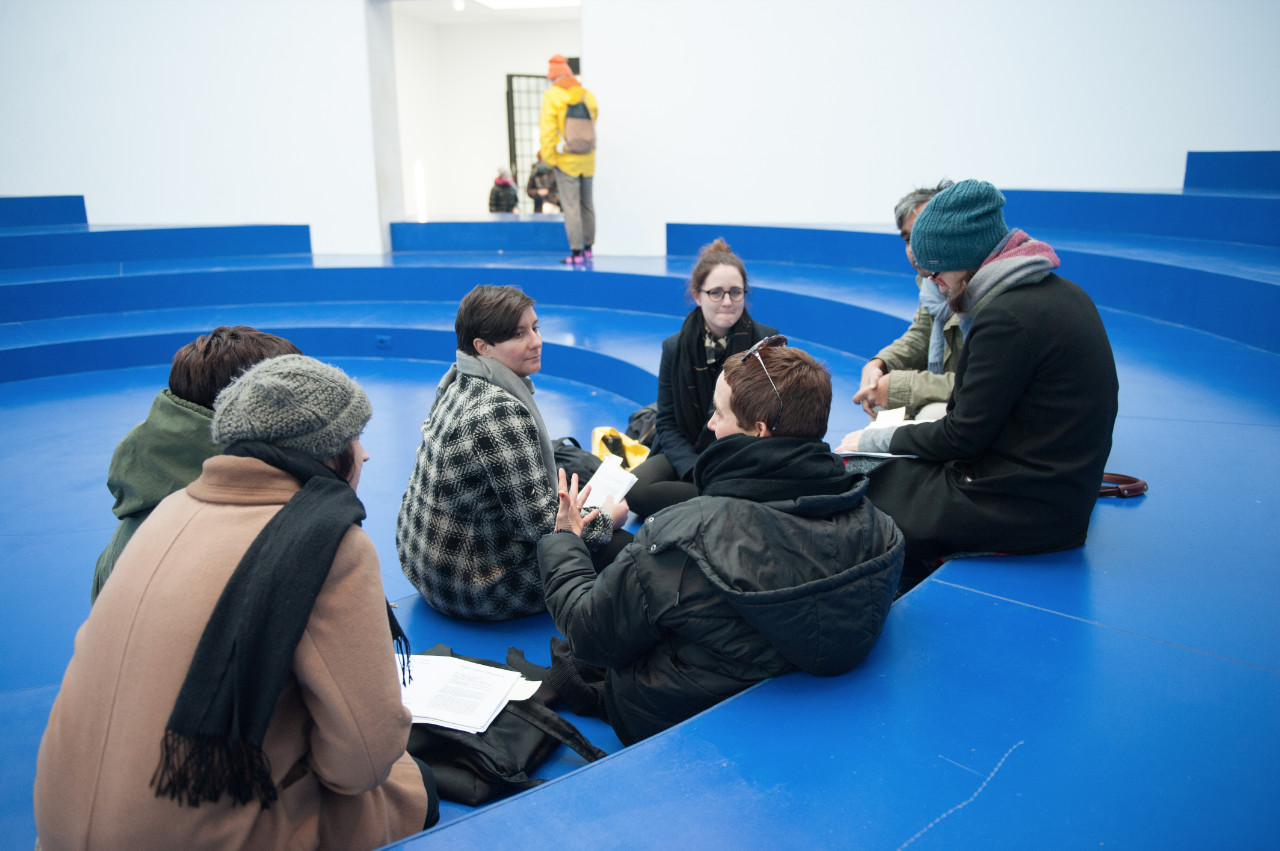
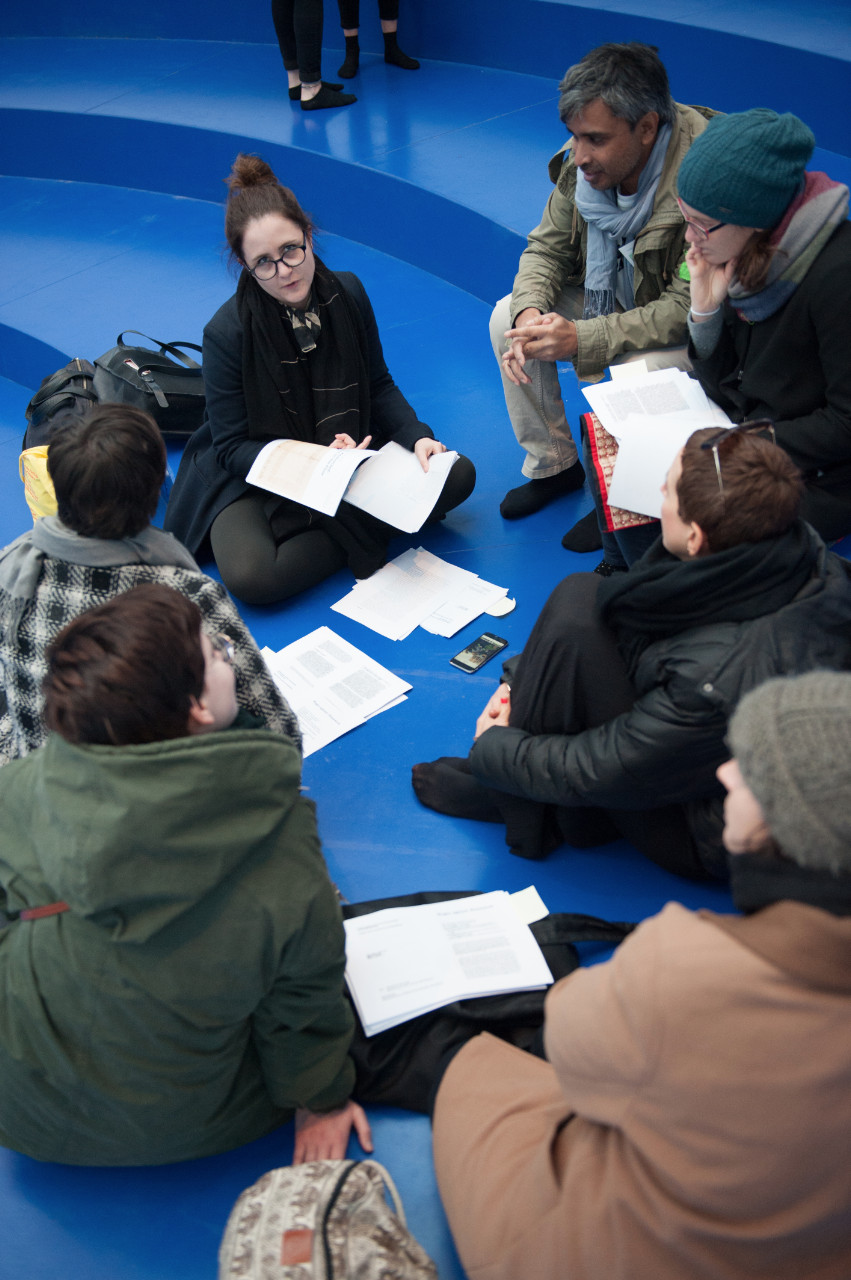
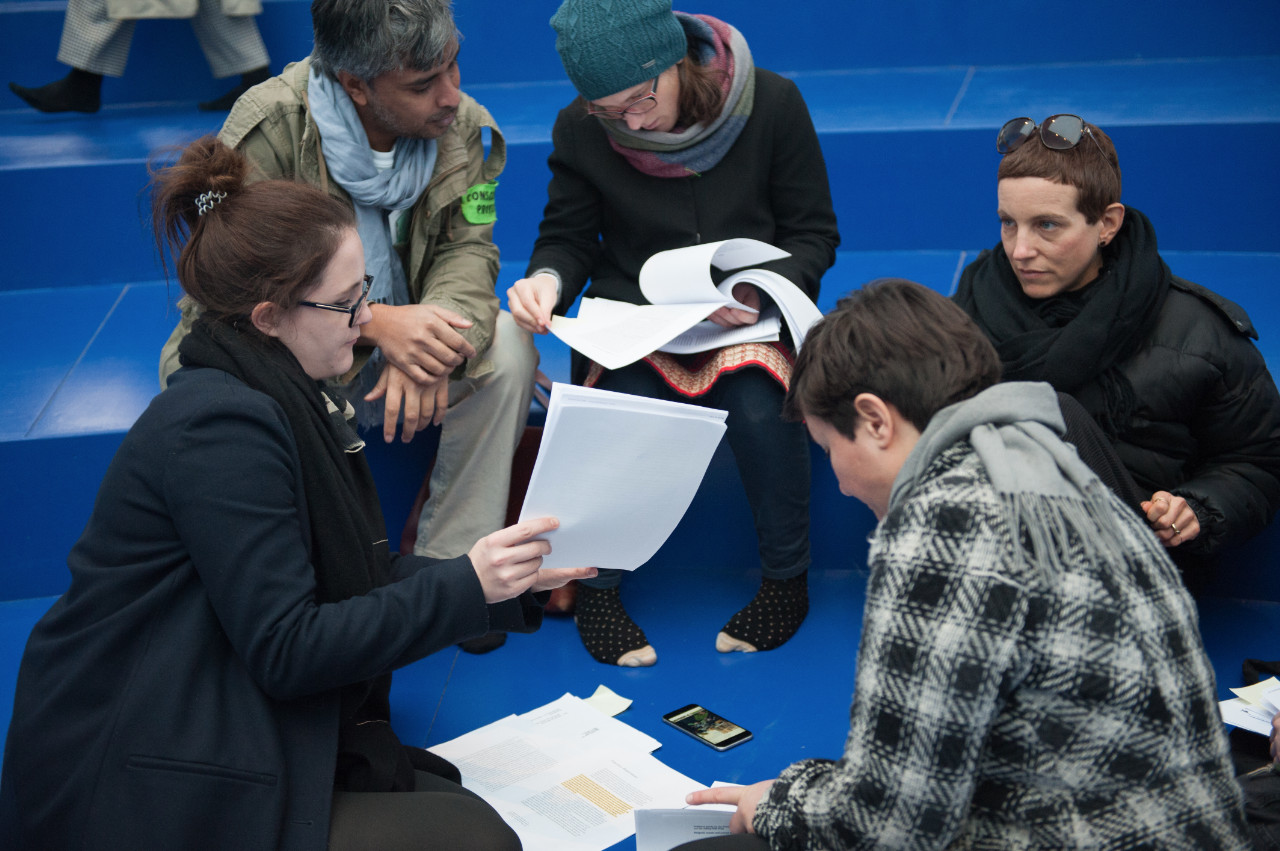
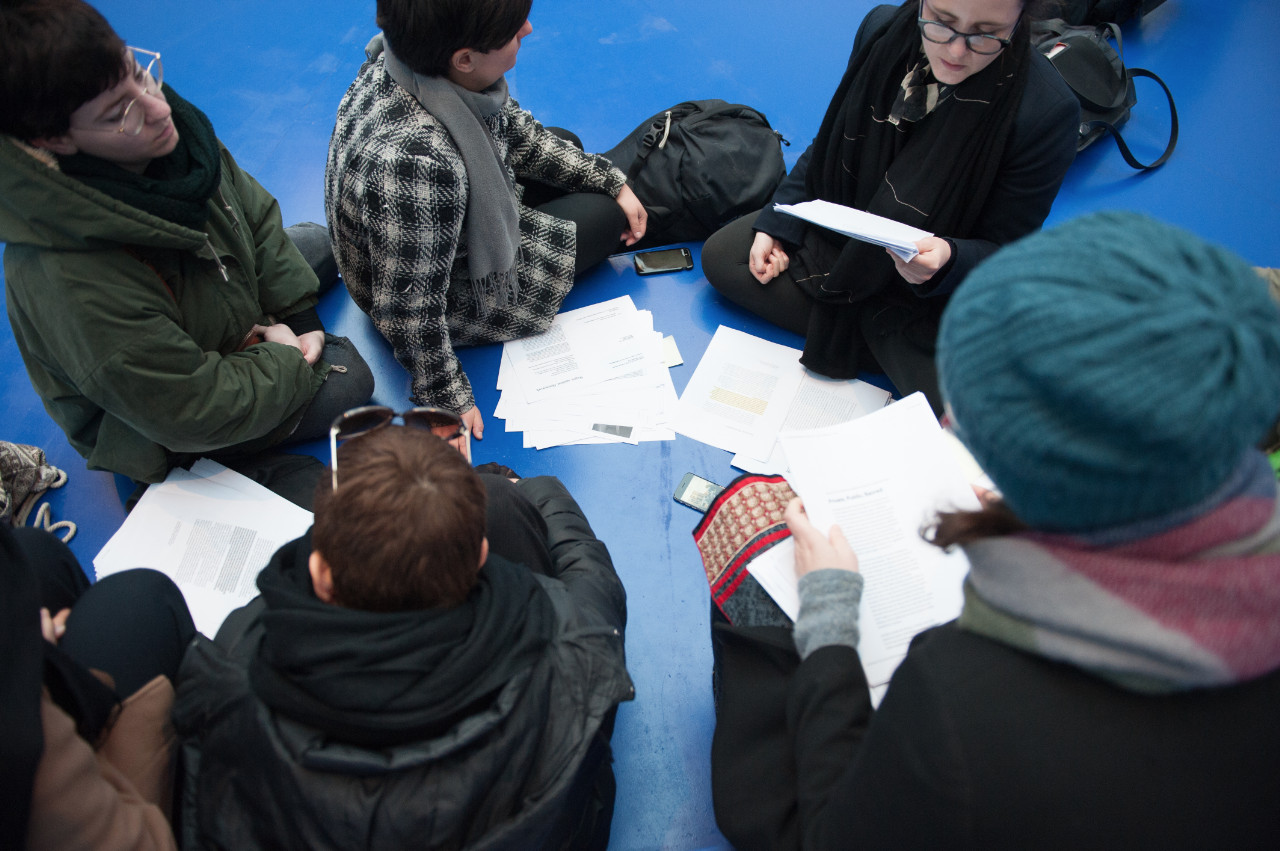
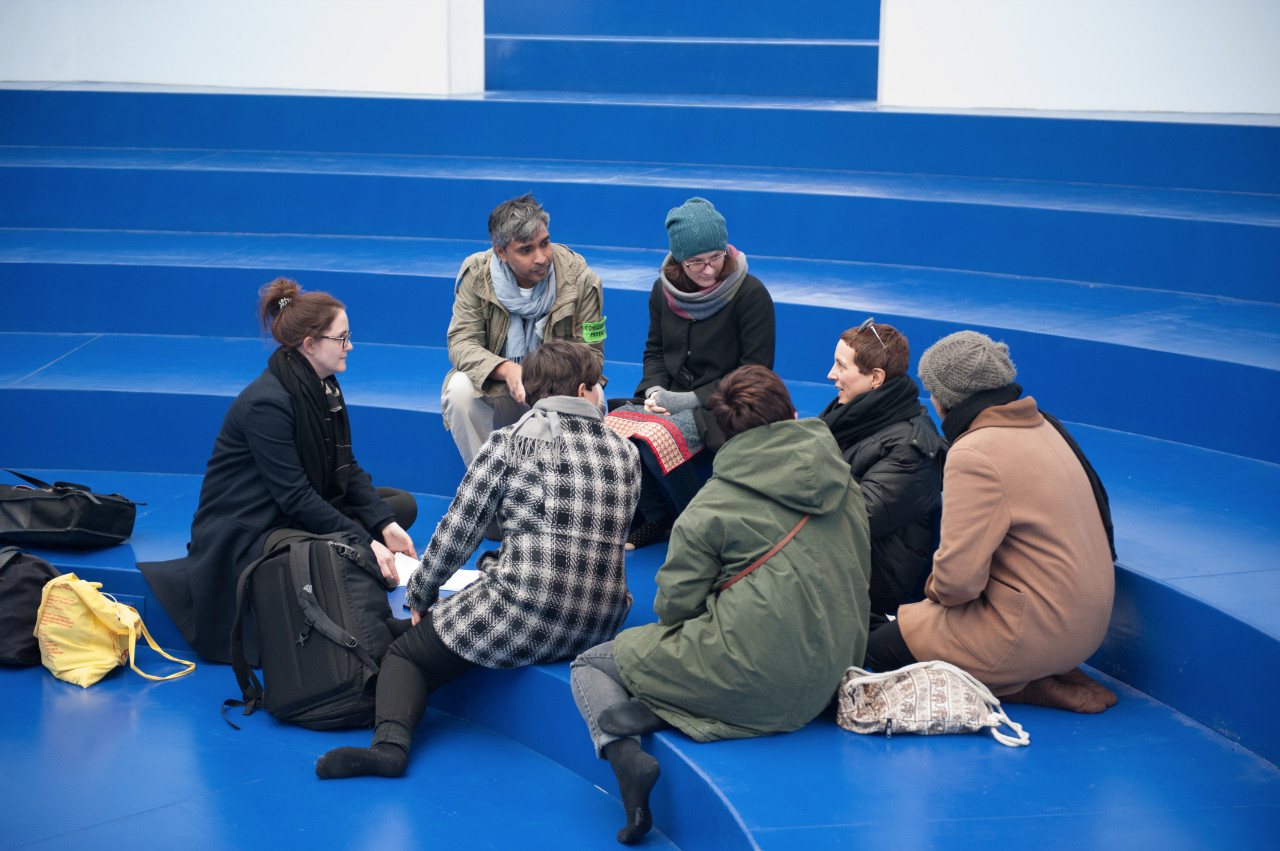
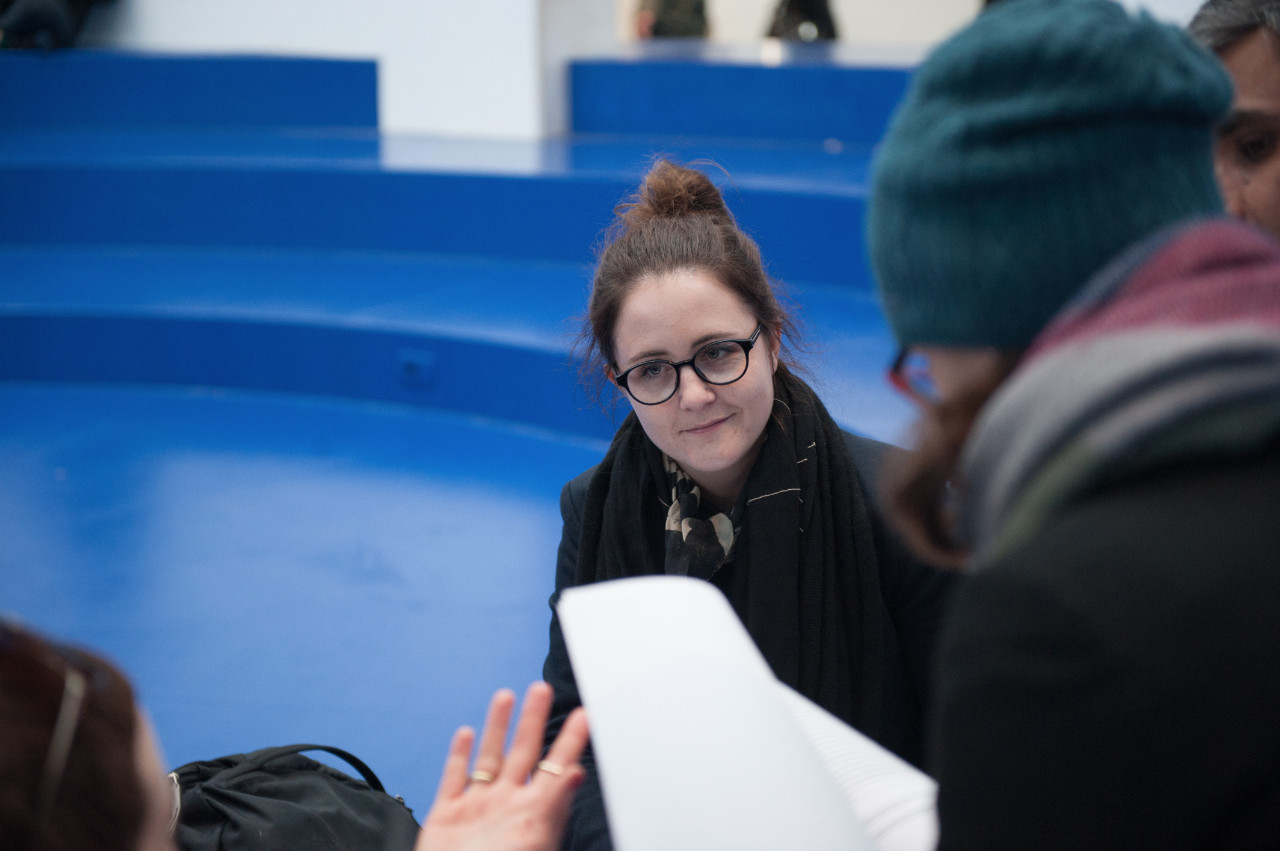
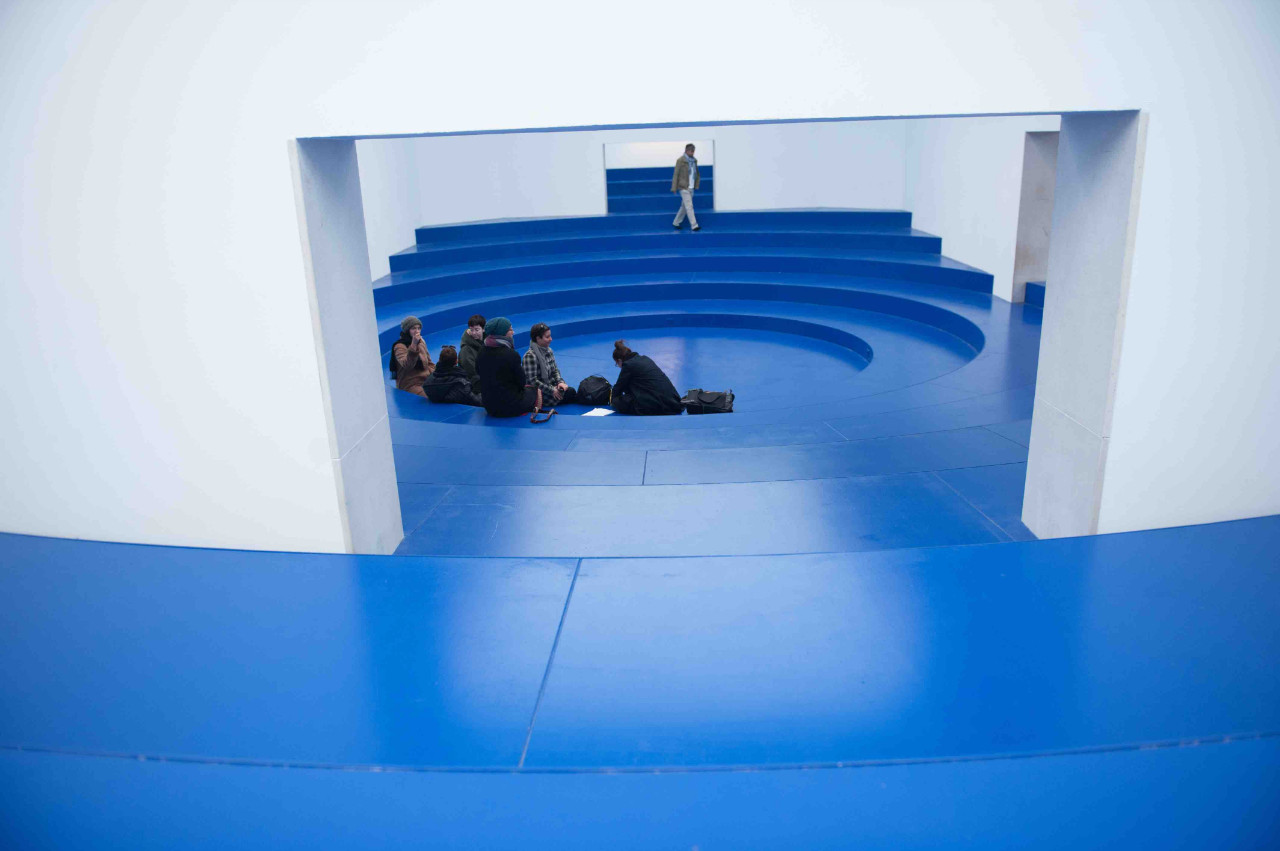
Collective speaking performance with text fragments by Beatriz Colomina, Silvia Federici, Pier Vitorio Aurelli, Isabell Lorey, others, and contributions by the participants.
Scaffolding Desire
Real estate is not only conditioned by various paratemers such as finance, class and corporate ideologies. Spatial construction takes place within global infrastuctures of desire and molecular love. At the same time it is embedded in the politics of algorithmic affective codes based on the cognitive exploitation of media-saturated public space.
The interior space of some of the Giardini’s pavillions can be conceived of organs that are not normative but propose spatial imageries such as those of fluid, multiple or transbodies. These domestic or interior spaces are to normative architecture what former warehouse areas are to new urban zones and its smart territorries, finance or logistics parks. The bodies, breasts and skins of former territorries are for cosmetic surgery, or psychiatry. What the technical discourse of the centralized power considers to be the emblematic organs of our bodies, the automated floorplans, are no more real than the chaotic and fluid inner state of the emerging multiple bodies of our scaffolded post-digital realities.
The floor plan is a significant parameter, through which the organisation of space, body and entire public areas is determined by capital and economic value produced. It abstracts space because of the intangibility of its finace-driven logic. A starting point of this workshop is to destabilize, aliente and distrupt the power of today’s automated floorplan is to overcome the polarization of abstract vs. physical that has conditioned our interpretations of space. Can the bodies’ plasticity overcome the plastic logics of finance-driven floorplan? Can its plasticies propose and sketch out other rituals of living together? Disrupting civilizing rituals of living? The workshop participants’ bodies will conceive the floor plan not just an abstraction of architecture but a «concrete abstraction» (Pier Vitorio Aureli) since the forms of bodily encounters, translate certain determinations such as money, measures, code, gender, class, ideologies, etc.- into gestures which propose alternative imageries for living in the age of post-digital mobilisation of life by affective technology.
The point is to affirm the financialised trajectory of built space not as a process of dematerialisation but rather in the sense of a re-materialisation. Bodies begin as objects and dissolve into agencies, which perform in continously reconfiguring micro-assemblages througout the Biennale’s Giardini. Their agencies are scaffolding agencies. They continously compose, recompse, newly configure relations and positions, developing into an assemblage between them and the spatial parameters. So, how can the scaffold of post-political architecture become a means of action and a tool, and how can the surrounding subjects make the re-materialisation of architecture as technology socially usable and useful? The affective interwoveness of the bodies during some exercises in this workshop create durational and social accountabilities, that transform the scaffold – the algorithmic scaffold – within which they labour, into scaffolding agencies.
This workshops defines itself as art practice consolidated through an infrastructural model of production and the configuration of a new framework for public dialogue. Creating an open space of participatory discussion, it sets itself off from current forms of institutionalized debate and aims to test the possibility of forming professional alliances beyond the ubiquitous networks of biennials, residencies, or group exhibitions.
In collaboration with Sandry Oehy.
A part of this text is inspired by Paul Preciado.